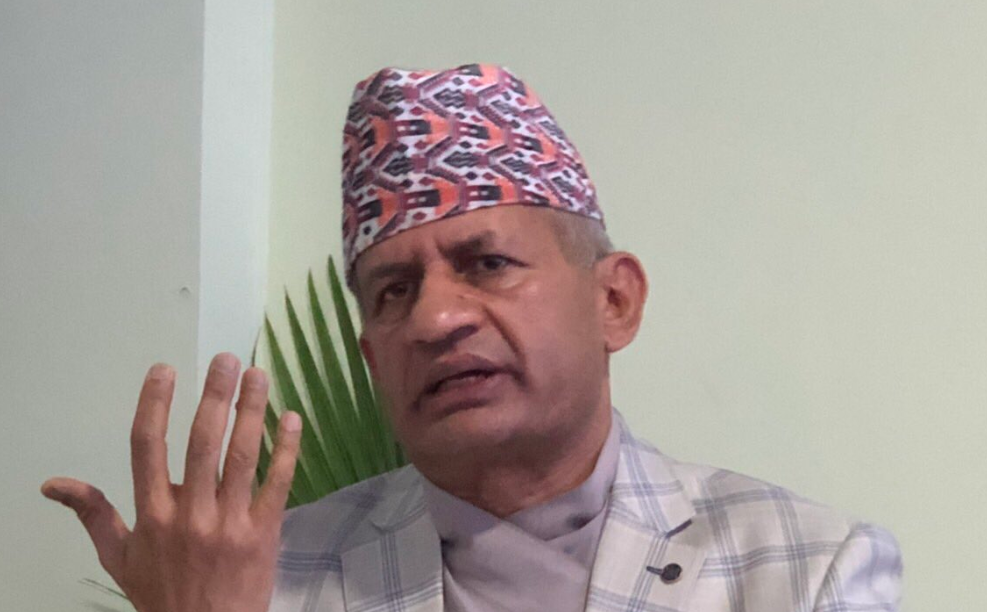Nepal will never accept interference in domestic politics: Nepalese Foreign Minister Gyawali

- Country:
- India
Nepal will never accept external interference in its domestic politics as it is capable of handling internal problems, Nepalese Foreign Minister Pradeep Kumar Gyawali said on Saturday in the backdrop of China wading into the political turmoil that erupted in the Himalayan nation after dissolution of its Parliament.
At the end of his three-day India visit, the Nepalese foreign minister also said that both New Delhi and Kathmandu have a ''common commitment'' to resolve the boundary issue and suggested that both sides are working on modalities to address it.
Gyawali, who held extensive talks with External Affairs Minister S Jaishankar on Friday, told a group of journalists that Nepal has ''excellent'' relations with both India and China, adding it never compares ties with each other. ''We never accept interference in our domestic politics. We are able to settle our own problems. As a close neighbour, there may be some concerns or questions but we never accept interference,'' the Nepalese foreign minister said when asked about China's attempts to play a role in defusing the political crisis in the country.
Nepal plunged into a political turmoil following Prime Minister K P Sharma Oli's sudden decision last month to dissolve Parliament and call for fresh elections in view of internal feud in the ruling Nepal Communist Party (NCP).
As the crisis deepened, China rushed a high-level team headed by vice minister of the International Department of the Communist Party of China (CPC) Guo Yezhou to Kathmandu hold talks with the rival factions within NCP. The Chinese meddling triggered a strong criticism within Nepal.
Asked about allegations by NCP leader Pushpa Kamal Dahal 'Prachanda' that Oli split the ruling party and dissolved Parliament at India's behest, Gyawali did not give a direct reply, saying as Nepal's foreign minister he represents everyone including Prachanda. At the same time, the Nepalese foreign minister justified Oli's decision to dissolve Parliament, saying he followed the democratic principle of seeking a fresh mandate from the people whose decisions are supreme in a democracy.
''In a democracy, people are the final authority to decide about who will govern. I think the dissolution of the Parliament is a reflection of the internal issue. It is not wise to blame anybody,'' Gyawali said.
''Prime Minister Oli thought that time has come to seek a fresh mandate in line with the universally accepted practise of seeking people's views,'' he said.
Asked about the boundary row between Nepal and India, Gyawali said both the countries have a common commitment to resolve the issue.
''We have the common commitment to resolve it. The sanctity and security of the border are extremely important for expanding the overall developmental cooperation...We both have realised the urgency (to resolve the border issue),'' he said.
Gyawali suggested that both sides are working on the modalities in mapping the areas concerned.
Referring to overall relations with India, he said it has been in ''good shape'' and that both sides have resolved to give further momentum to it. ''Despite differences (on boundary issue) and COVID-19, both sides were able to maintain high-level development cooperation. Differences have not been able to impact overall ties. For Nepal, the relationship with India is extremely important,'' he said.
Ties between India and Nepal came under severe strain after Nepal last year published a new political map that showed three Indian territories - Limpiyadhura, Kalapani and Lipulekh - as part of Nepal.
When asked about India's assertion that the areas were its part, Gyawali said that ''historical documents speak the reality'', in an indication that they belonged to Nepal.
''We can sit together with mutual trust to find a solution,'' he added.
Gyawali, accompanied by Nepalese Foreign Secretary Bharat Raj Paudyal, arrived here on Thursday on a three-day visit.
In the interaction, he also batted for an early review of the Indo-Nepal Peace and Friendship treaty of 1950 and flagged concerns over his country's increasing trade deficit with India.
Asked whether Nepal was looking to procure coronavirus vaccine from both India and China, Gyawali said the supply of vaccines should be viewed as a global public good and that scientific aspect should determine decision making and not a political judgement.
He said affordability, availability and promptness in supply, as well as compatible infrastructure to store the vaccines in Nepal, will determine its decisions on their procurement.
In their talks on Friday, Jaishankar and Gyawali held a comprehensive review of all aspects of bilateral ties including border management, connectivity, trade, power, oil and gas, water resources, capacity building and tourism among others.
It was the first high-level engagement between the two sides after relations nosedived following the boundary row.
(This story has not been edited by Devdiscourse staff and is auto-generated from a syndicated feed.)
ALSO READ
Microsoft and NetEase to re-launch Warcraft game in China, ending feud
US considers easing warnings for Americans traveling to China
Canadian espionage agency claims China interfered with last two elections won by Trudeau
Philippines president says trilateral summit with U.S., Japan to include South China Sea cooperation
China says US comments on Taiwan and AUKUS are dangerous










